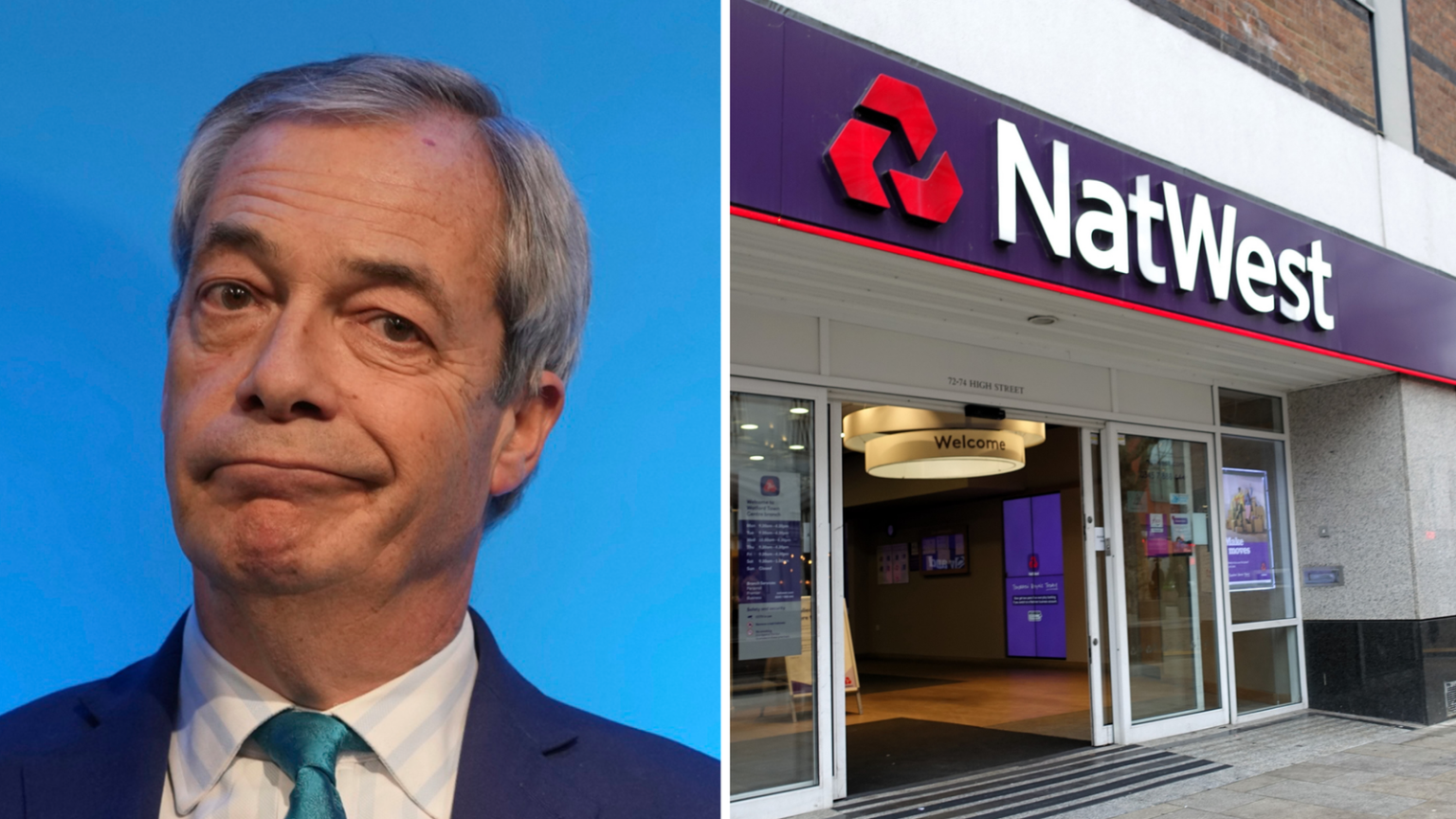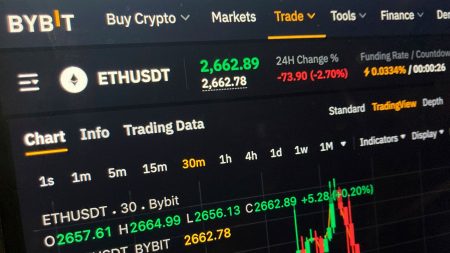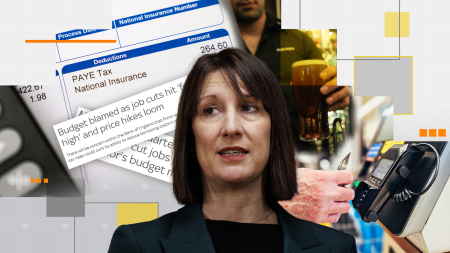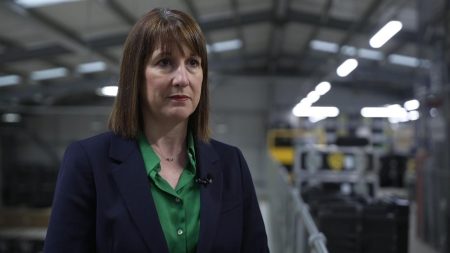Nigel Farage’s Legal Battle Against NatWest: A Growing Storm in British Banking and Politics
Introduction: A New Front in the Debanking Controversy
Nigel Farage, the leader of Reform UK, has taken a significant step in escalating his legal fight against NatWest Group by exploring private criminal proceedings. This move comes in the wake of the debanking scandal that led to the resignation of NatWest’s former CEO, Dame Alison Rose, in the summer of 2023. Farage has instructed Chris Daw KC, a prominent barrister from Lincoln House Chambers, to investigate whether there are grounds for a criminal case against the banking giant. This development is strategically timed to coincide with the release of NatWest’s annual results on Friday morning, just weeks before the UK government is expected to sell its remaining stake in the bank. Nearly 17 years after the £45.5 billion taxpayer bailout, the government’s share in NatWest now stands below 8%, with a full exit anticipated by spring.
Farage confirmed to Sky News that Grosvenor Law, which is already representing him in separate civil proceedings against the bank, had instructed Daw KC to explore the possibility of a private criminal prosecution. He described the situation as "unfinished business," signaling his determination to hold the bank accountable. Dan Morrison, a partner at Grosvenor Law, added, "Mr. Farage is concerned about possible criminal issues arising out of the bank’s conduct. We have therefore decided to instruct leading criminal counsel." The case centers on whether NatWest’s Coutts subsidiary closed Farage’s accounts for commercial or political reasons, a controversy that has sparked widespread debate and raised questions about the fairness of banking practices.
The Debanking Scandal: A Political and Financial Firestorm
The debanking scandal, which led to the departure of Dame Alison Rose, first came to light when NatWest’s Coutts subsidiary decided to close Farage’s accounts. Initially, the bank claimed the decision was based on commercial considerations. However, Farage later obtained internal evidence suggesting that his political activities played a significant role in the decision. This revelation reignited concerns about the politicization of banking and whether individuals or institutions with certain viewpoints are being unfairly targeted.
The scandal took on even greater political significance under the previous Conservative government, with then-Prime Minister Rishi Sunak and Chancellor Jeremy Hunt expressing a loss of confidence in Dame Alison Rose’s leadership. Her eventual departure marked a turning point in the debate, with regulators stepping in to address the broader implications of the case. The Financial Conduct Authority (FCA) has since instructed banks and financial firms to ensure that politically exposed persons (PEPs), including parliamentarians, senior public servants, and their families, are not treated unfairly. This move reflects a growing recognition of the need for transparency and accountability in banking practices, particularly when they intersect with political life.
Regulatory Response: Ensuring Fair Treatment of Politically Exposed Persons
In response to the debanking scandal, the City watchdog has taken steps to address concerns about the fair treatment of politically exposed persons (PEPs). The FCA has instructed banks and financial firms to do more to ensure that individuals like Farage, who hold significant political influence, are not unfairly targeted or discriminated against. This regulatory intervention highlights the broader implications of the case, which go beyond a simple dispute between a bank and its customer.
The case has also raised questions about the balance between commercial decisions and political neutrality in banking. While banks have the right to make decisions based on risk assessments, the suggestion that political considerations may have influenced the closure of Farage’s accounts has sparked a national conversation about the role of banks in society. The FCA’s response underscores the importance of maintaining public trust in the financial system and ensuring that decisions are made on a fair and transparent basis.
Nigel Farage’s Influence and the Broader Political Landscape
Nigel Farage’s decision to pursue legal action against NatWest comes at a time when his influence in British politics appears to be growing. Despite leading Reform UK to only a handful of seats in the last general election, his party finished second in scores of constituencies, signaling a potential shift in the political landscape. Recent opinion polls have even placed Reform ahead of both Labour and the Conservatives for the first time, indicating that Farage may play a crucial role in shaping the identity of Britain’s next government when the country goes to the polls in 2029.
Farage’s close ties to former US President Donald Trump, who was inaugurated for the second time last month, have further fueled speculation about his potential influence on British politics. His ability to mobilize support and shape public opinion, particularly on issues like Brexit and immigration, make him a formidable figure in the current political climate. As the UK approaches its next general election, Farage’s legal battle with NatWest could serve as a rallying cry for his supporters, further cementing his status as one of the country’s most influential politicians.
The Quest for Justice and the Failed Settlement Talks
Despite the ongoing legal battle, tentative discussions between Farage’s legal representatives and NatWest about a possible settlement have failed to result in any financial agreement. Farage was expected to seek millions of pounds from the company, alleging that the debanking row had damaged his reputation. The failure of these talks has cleared the way for a potential private criminal prosecution, marking a fresh escalation in the case.
Farage’s determination to pursue legal action reflects his belief that the bank’s conduct was not only unfair but also potentially criminal. His decision to instruct a leading criminal barrister like Chris Daw KC suggests that he is prepared to leave no stone unturned in his quest for justice. The case has also raised questions about the accountability of large financial institutions and their treatment of high-profile customers. As the legal battle unfolds, it will be closely watched by both the financial sector and the wider public, given its implications for transparency and fairness in banking.
NatWest’s Financial Health and the Road Ahead
Despite the looming threat of a private criminal prosecution, NatWest appears to be in its most robust financial health for decades. The bank, now led by CEO Paul Thwaite, has undergone significant restructuring and recovery efforts since its £45.5 billion bailout during the financial crisis. The government’s stake in the bank is now below 8%, and a full exit is expected during the spring. This marks a major milestone in the bank’s journey towards full privatization, signaling confidence in its ability to operate independently.
However, the legal challenges posed by Farage’s case could cast a shadow over the bank’s recovery. A NatWest spokesperson declined to comment on the matter, stating that the bank does not discuss individual customer cases. Yet, the broader implications of the case are unlikely to go unnoticed. As the UK government prepares to sell its remaining shares, the bank will need to navigate not only the legal complexities of the case but also the reputational challenges it presents.
In conclusion, Nigel Farage’s legal battle with NatWest represents a significant and ongoing challenge for the bank, with implications that extend far beyond the financial sector. As the case unfolds, it will not only test the boundaries of private criminal prosecutions but also shed light on the delicate balance between commercial decisions and political neutrality in banking. For Farage, the case is about more than just financial compensation; it is a matter of principle and a fight for justice. For NatWest, it serves as a reminder of the importance of transparency and accountability in maintaining public trust. As the UK’s political landscape continues to evolve, the outcome of this case could have far-reaching consequences for both the banking industry and the broader political arena.















